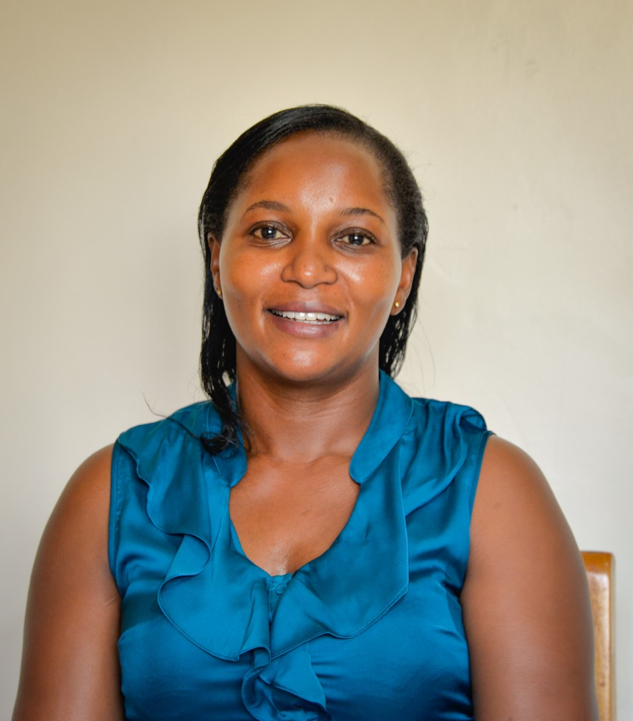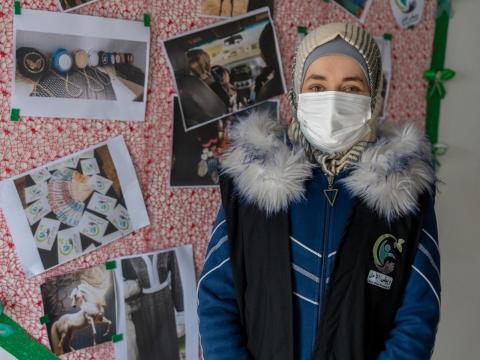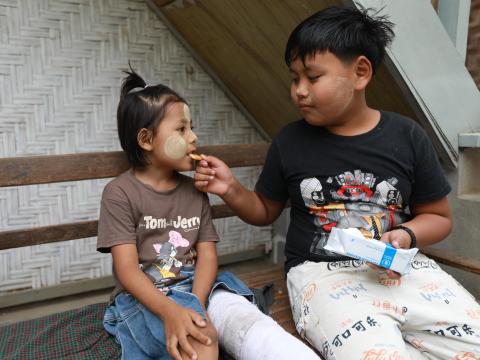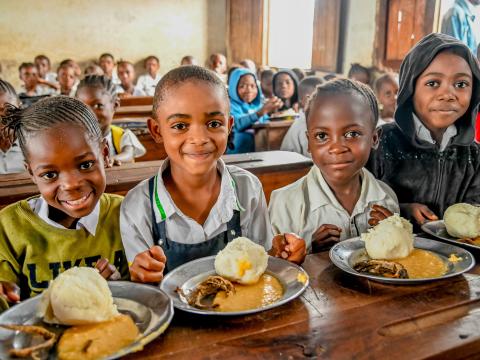
School meals: The world’s biggest safety net for vulnerable children
Mary Njeri shares compelling reasons why now is the critical moment to continue investing in school meals programming.
There is no doubt about it—the humanitarian ecosystem is experiencing its most important existential threat since the multilateral architecture was founded post-World War II. Amidst soaring humanitarian and protection needs, protracted conflict and growing climate threats, funding cuts undermine the stability of vital programmes and services.
As humanitarians, we are no strangers to danger, risks, and crises, yet our collective ability to prepare and respond to this polycrisis is being put to the ultimate test. Now more than ever, it is imperative for the humanitarian community to determine what to prioritise and how to engage.
The COVID-19 crisis revealed significant lessons learned on the importance of school meals programming as a central safety net for children. Despite school closures, school feeding proved to be one of the largest and most widespread social safety nets in the world, benefitting 418 million children globally through new feeding modalities, venues of distribution, and approaches to targeting.
The outcomes of school meals implemented during the pandemic align with evidence gathered in other settings, indicating that during crisis, school meals promote child well-being, uphold dignity, strengthen hope, and empower school feeding programmes to improve the health and education of children; make communities more resilient; promote gender equality; and support national economies and social stability.
Governments, across the world, have emerged from the pandemic with a much clearer understanding of the need to invest in the education and well-being of their schoolchildren and adolescents and of the need to create national programmes that ensure good education and quality school-based health and nutrition services.
School meal initiatives also create demand for locally sourced foods, supporting smallholder farmers and local businesses. In Cambodia, World Vision's Home-Grown School Feeding initiative exemplifies this integrated approach. By providing skills training and strengthening farmer cooperation to improve education, the initiative enables local farmers to supply schools with nutritious, fresh foods such as fish and vegetables. As a result, students gain access to healthy meals like fish soup, which significantly improves their nutritional intake.
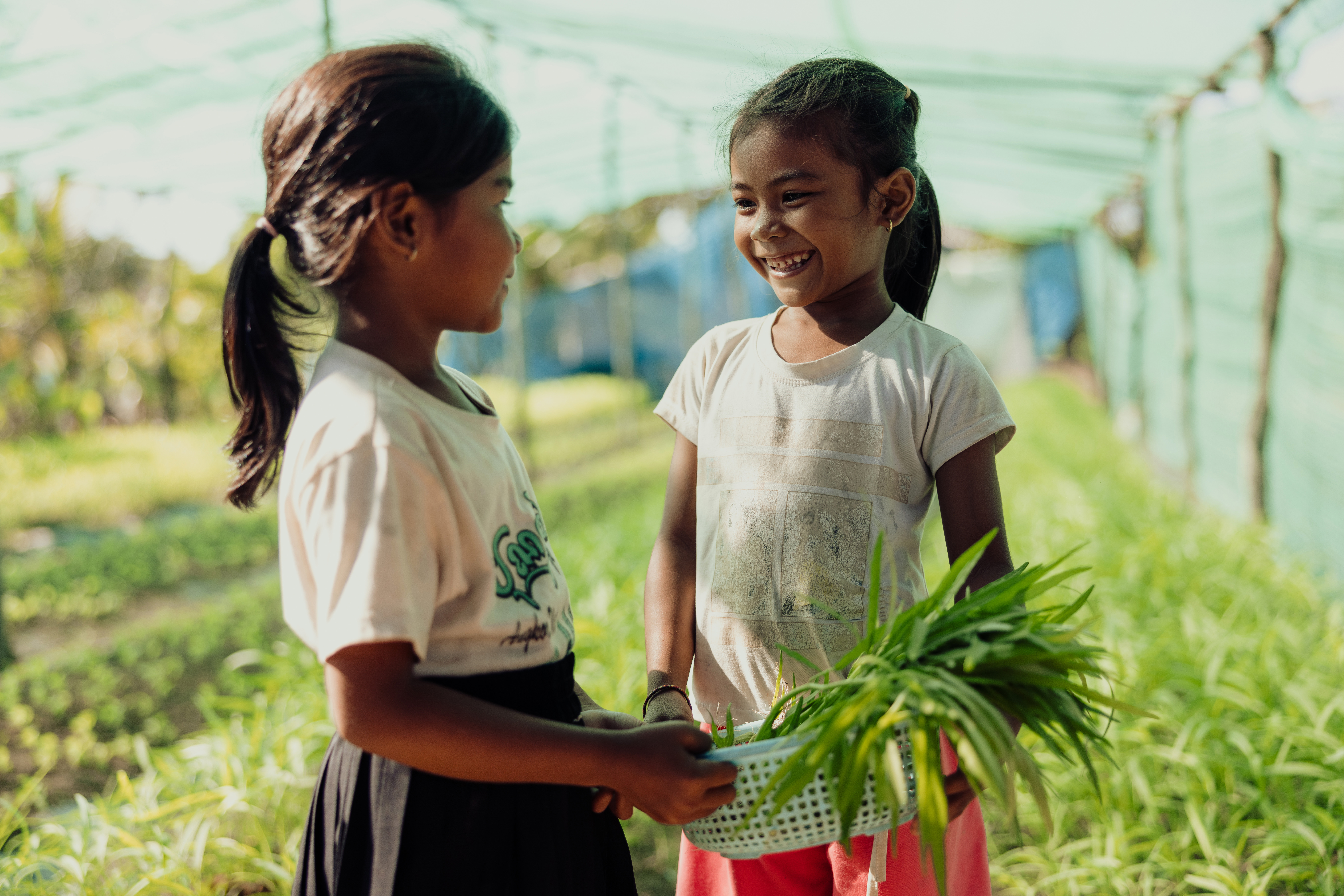
A Holistic Approach to School Meals
World Vision brings a unique and holistic approach to school meals programming in partnership with the School Meals Coalition. As a child-focused organisation, our number one priority is to put children at the centre of all school meals interventions. Empowering children begins with helping them understand what school feeding means—globally and within their own country contexts. It involves exploring opportunities for them to be more engaged in supporting local authorities in designing and implementing school meal programmes.
In 2024, the Nutrition Dialogues initiative, led by World Vision and the 4SD Foundation, engaged over 10,000 individuals from 54 countries in discussions to address the global nutrition crisis. Some 41 percent of participants were children and youth aged 12 to 18, who shared powerful experiences highlighting their struggles with nutrition challenges in schools and beyond. School meal programmes emerged again as a significant topic of discussion. Participants stressed that school feeding programmes play a critical role in encouraging the poorest families to send their sons and especially their daughters to school. Once in the classroom, school meals ensure children are well-nourished and ready to learn.

Children advocated strongly for integrating fresh, locally sourced foods and nutritional education into school meal programmes, empowering them with lifelong healthy eating habits while supporting the local economy. School gardens also serve as valuable educational tools, teaching children essential skills related to nutrition, agriculture, and environmental sustainability. Like in Malawi, children described the potential scope of school meals: "The government should establish school feeding programmes in areas affected by hunger. This initiative would encourage consistent school attendance as learners are assured of receiving meals, thereby supporting both education and nutrition. Schools should be encouraged to set up school gardens to grow fruits and vegetables. The produce can be consumed by learners or sold to generate funds for purchasing additional food items".
This process allows children to share their perspectives, needs, and ideas to create more inclusive, effective, and sustainable solutions for issues that affects them. Ultimately, the goal is for children to be enabled to influence the development and implementation of school meal programmes and to improve their delivery in line with children’s priorities.
These reflections were at the centre of a recent school meals informal workshop organised in partnership with the School Meals Secretariat (Rome - Italy), a prominent and innovative vehicle for multilateral action to address multiple Sustainable Development Goal (SDG) outcomes. As the Coalition’s secretariat, WFP supports countries of all income levels to share experiences, access financing and improve their approaches, supported by a global network of partner organizations. WFP helps all Coalition partners to coordinate action and connect to the initiatives, which it helped to incubate and launch. The event provided the opportunity to discuss strategic engagement on school meals during key upcoming events, including School Meals Coalition Global Summit; 2nd UN Food Systems Summit Stocktake (UNFSS+4) and regional meetings; COP30. One of the key commitments that emerged from the workshop was to ensure children’s voices are listened to and heard during these global events, through the presentation of child-led research findings, children’s stories captured through pictures/videos, and their active participation in creative side-events.
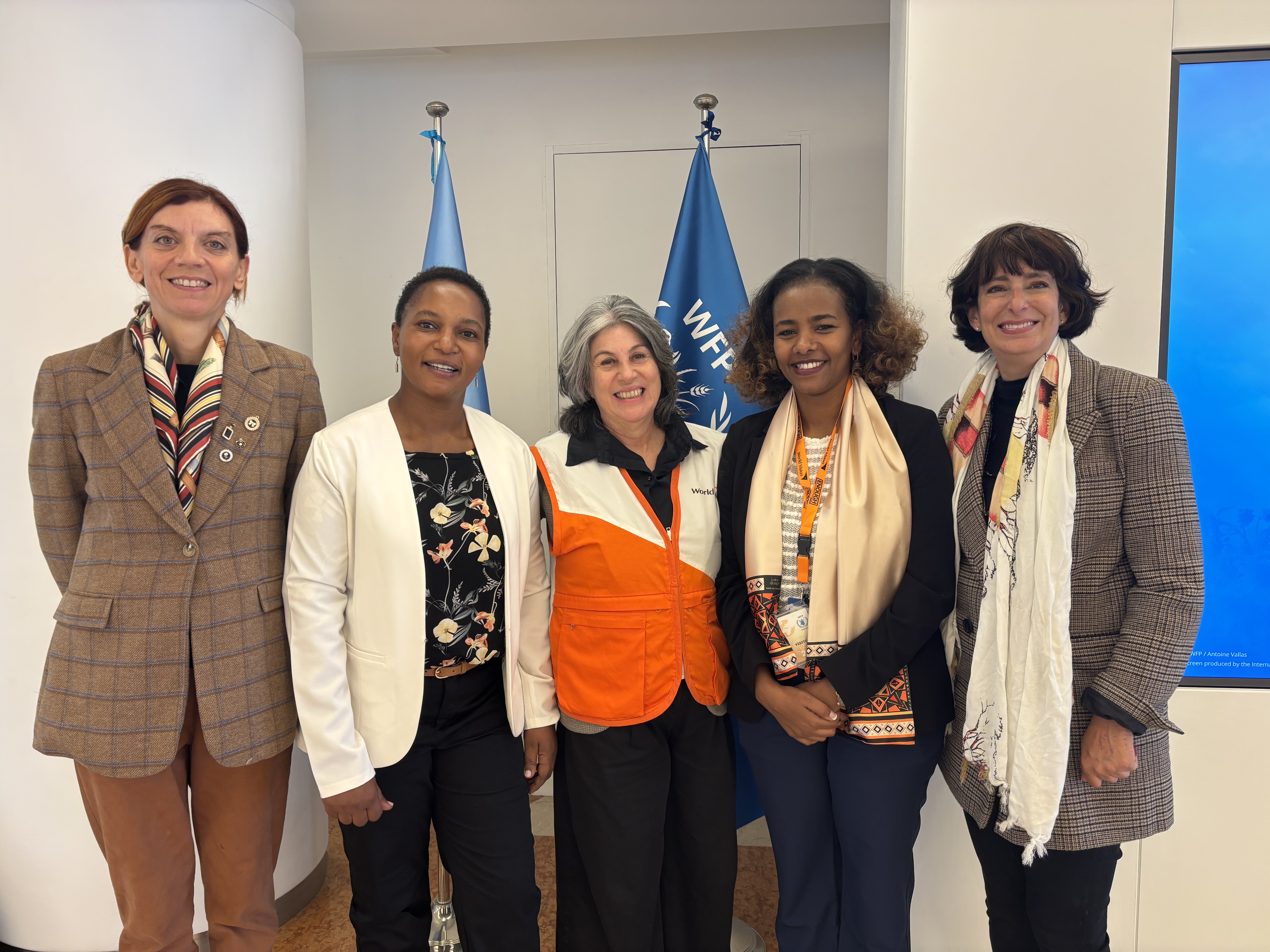
From World Vision’s experience with rolling out such programmes, NGOs play a vital role in providing technical support to governments and Civil-Society Organisations in designing and implementing impactful integrated school meals programmes. This includes empowering local farmers with the knowledge, skills and tools to produce quality food items in sufficient quantities to supply school meals. A truly holistic school feeding programme encompasses multiple dimensions of services and engages a wide range of stakeholders.
A multifaceted approach to school feeding involving a range of stakeholders not only increases financial investments but also improves coordination, innovative solutions, and strategic alignment between all actors involved. In the words of a child from Guatemala: ‘The absence of effective integration between the government, civil society, the private sector, and communities hinders the implementation of programmes. There is limited interinstitutional communication and a fragmented approach to resource allocation.’ (Nutrition Dialogues, Global Synthesis Report).
Where do we go from here?
The importance of school meals as a lifeline for children cannot be overstated. There is a need for continuous efforts to raise awareness and understanding of the centrality of school meals as the world’s most important safety net. School meals are not just about food; they are about hope, dignity, and the promise of a better future. They are the world's most significant safety net for children, providing stability in the face of adversity. The School Meals Coalition offers an inspiring vision of the future and World Vision is fully committed to continue working with the Coalition partners, especially Civil Society Organisations, to ensure that efforts and initiatives are led by children, their families and their communities.
Our commitment is unwavering. Through school meals, we aim to build strong safety nets for vulnerable children; our ability to mobilize resources and support at all levels are critical in achieving the ambitious goal of ensuring governments meet their commitments for universal coverage of school meals.
World Vision's dedication to this cause, coupled with the voices and experiences of children from around the globe, underscores the transformative power of school meals. By integrating education, nutrition, health, gender equality, climate resilience, economic empowerment and community engagement, we can create a holistic approach that empowers children and strengthens communities.
As we move forward, let us remember the words of the children who have spoken out, advocating for fresh, locally sourced foods and nutritional education. Their insights and resilience remind us that investing in school meals is an investment in the future. It is a call to action for governments, civil society, and all stakeholders to unite in this mission. Together, we can build a world where every child has access to the nourishment they need to thrive, learn, and grow. Let us continue to champion school meals as the cornerstone of a brighter, more equitable future for all children.
